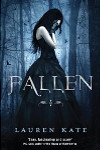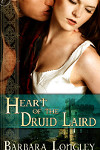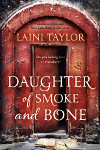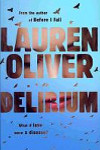Gayle Forman – If I Stay
Posted 3rd September 2010
Category: Reviews Genres: 2000s, Paranormal, Romance, Spiritual
1 Comment

When there are people in different corners of existence, and both sets are people you love, who do you choose to go to?
Publisher: Doubleday (Random House)
Pages: 210
ISBN: 978-0-385-61621-8
First Published: 2009
Date Reviewed: 12th August 2010
Rating: 3.5/5
If I Stay has been given a very warm reception by bookstores and online media. It has been hailed as the forerunner to other tales and indeed Lauren Oliver’s (later) release, Before I Fall, was compared to it.
Mia’s family car crashes while they are all in it. She (Mia) locates her parents but where she thinks she’s found her brother she’s actually found herself. Her spirit has left her body – but she’s not dead yet. Throughout her time in the Intensive Care Unit, Mia continues her out of body experience, looking back on her life, at the extended family, friends, and boyfriend who visit her, and wonders what’s next. What can she do? What should she do? Both are questions she must answer for herself.
Maybe it was all the hype, or maybe the fact that I’d already read Before I Fall, but I didn’t find If I Stay to be as compelling as I’d hoped. Forman tells a good story, Mia’s unpredictable state over the course of the day, but although there were flashbacks I never felt enough for the characters. And this is important for a book dealing with such a subject. If it had been longer there would’ve been more to grasp hold of as Mia didn’t have enough time within the 210 pages to develop herself. I wasn’t convinced of Mia’s relationship with Adam. This wasn’t the fault of the relationship itself but rather in the way Mia saw it. We get a good glimpse of the strength of Adam’s feelings but they needed to be written stronger rather than eluded to. It was Mia’s love that was the problematic part.
Adam is a hero, but often Mia doesn’t understand his motives. The reader does, however, and this is frustrating because everything points to the obvious choice of life. Personally I was confused as to how she could choose anything else because the reasons were staring her in the face. In that way she sometimes seemed selfish, even if she actually wasn’t. Perhaps some space for Adam’s point of view here would have remedied that and I am very happy to have heard that a sequel is being written as If I Stay may not be perfect but it’s good enough for you to want to stick around.
Music is everything in this story. It’s the reason for Mia’s parent’s relationship, the reason they have their good family friends, and it’s the reason Mia became close to Adam. Most of the time Mia’s thinking reverts to her cellist training and she is constantly, though unknowingly, reminding herself that music is the reason to stay. Because of her family’s dependence on music one believes that Mia’s parents would, in the situation she is in now, tell her to put it before all else. I’m not sure if I am correct in this because I am a musician myself, but I would guess that people not familiar with the art would be able to understand most of the terms.
Mia and Adam’s shared devotion provides the meaning for a rather original intimate scene. In a way it’s quite strange and certainly a lot more graphic than most accounts of intercourse in fiction; and yet the sex is not introduced at that point. Forman favours this over any detailed tale of Mia’s loss of virginity, which she simply mentions instead of describing. The whole concept of the scene and Forman’s later reluctance are cause for a lot more thought than had she just had the characters ripping each others’ clothes off. Forman is subtly reminding us that sex doesn’t just have to be sex, doesn’t just have to be what everyone thinks. We can interpret it in our own way and make it specifically relevant to ourselves. And surely that makes for a more satisfactory and spiritual experience.
Forman’s writing is simple but it makes the book an easy read. Forman can be humorous and, considering the upsetting topic at hand, chooses her timing wisely. There is a fabulous scene involving birth that is worthy of many laughs out loud.
I often like to mention in a review what the reader can take away from the book, to cherish long after they’ve finished. Regarding If I Stay this is surely the central point of who you would choose. Forman isn’t suggesting you think of death per se, the idea can be applied to everyday situations; and to apply it to everyday situations doesn’t mean you have to take it literally and consider whether your parents are as important as your romantic interest, rather that you consider your feelings for everyone more than you usually would. Mia’s experience is the suggestion that you should.
If I Stay may be short but it does what it sets out to do within the limits of it’s page count. There are many books that will teach you the same things but if you’re looking for something that will still reach out to you in a small amount of time then this may be it.
Related Books
Lauren Kate – Fallen
Posted 3rd August 2010
Category: Reviews Genres: 2000s, Paranormal, Romance
3 Comments

The cover looked amazing. I turned the title pages to the beginning and was floored by the Victorian dark paranormal romance – this was going to be an incredible story. But then I reached chapter one and the modern day America set-up. My heart sunk. Twilight, only this time Edward Cullen was to be an angel.
Publisher: Corgi (Random House)
Pages: 452
Type: Fiction
Age: Young Adult
ISBN: 978-0-552-56173-0
First Published: 2009
Date Reviewed: 2010
Rating: 0.5/5
For the first time ever I’ve started writing a review long before I’ve finished the book – because I can, because I know exactly what’s going to happen throughout. Rest assured however that by the time this review is finished the book will have been also as I don’t like the idea of heckling something I’m not completely knowledgeable about.
Yes, there are a lot of problems with Fallen which is quite ironic considering it’s title, so I’d like to get all the similarities with Twilight listed so that we can move on to more positive aspects (indeed there actually are some).
Luce asks her friend what the arrogant boy’s problem is – the hero is an arrogant boy, prone to bouts of anger; Luce is clumsy and boring, her home town is called Thunderbolt and she has an old banger of a car; there’s a girl with a pixie haircut and Daniel seems to have unlikely friends; Daniel saves Luce from a falling statue; Luce does research to find out about Daniel; there’s a big lovely looking place they go to, open and scenic; Daniel’s skin looks golden and radiates the light when he’s in the sun; Daniel is always telling Luce to stay away from him; when a fight breaks out outside school, suddenly Daniel’s there and he whisks her home in a car. He’s very angry throughout the journey. The bad guys are after Luce and only Luce all the time; the long drawn out ending doesn’t solve anything; it looks like Daniel won’t be in the next book with Luce much…
I am astonished that Kate hasn’t been had up in court and fined profusely for this blatant plagiarism. Kate would have to be a very slow writer to have started this book before Meyer came on the scene.
None of the things I mentioned in the list are spoilers because this is a very predictable book. The one thing I was hoping for however was that Luce would be something else, and she’s not, she is Bella all over; in fact she is a contradiction. Kate tells us that Luce is very clever and at one point Luce is telling Daniel about all the academic achievements she’s gained in life – but never once does Luce come across as a good student. She seems incredibly ignorant and although she gets bored in classes it’s only because they are so long, not because the are at such a low level. She never once acts at all like someone who is studious.
There are some good points to the book, the most important being that yes, it does intrigue you to read the next one, even if you decide that there are a hundred books worth your time first and even if it’s just to find out how much like New Moon it will be. It takes a while but Kate finally lets up on the paraphrasing and starts crafting her own story and although it may not be what it could’ve been it’s decent enough (as long as what you’re expecting is teenage angst and damsels in distress). The history element is unique. Daniel may have lived as long as those sparkly vampires but we’ve got Luce’s lives to catch up on too. It will be interesting to see what Kate does about the religious aspect of the story: will she just exploit the angel idea or will she put a theological bent on it?
The writing is bad and at times it appears Kate forgets even the biggest issues. Luce gives her watch to a teacher because the pupils aren’t allowed them – but a little while later she looks at the time on her watch. Luce takes a sip from a bone-dry latte – how that works I’ve no clue.
The sky was that no-color color.
So was the sky coloured or not?
She’d always loved the fairly sweet musty way that only a roomful of books smelled.
Terrible.
Fallen would have been a far better book had Kate set it back in time during one of Luce’s previous lives, and made the story darker and more mature. If she had done that she would have escaped a lot of the criticism given to her.
If you want to read Twilight without reading Twilight, read Fallen. You’ll be able to converse fluently in discussions about Stephenie Meyer’s work by the time you’ve reached the end.
Related Books
Lauren Oliver – Before I Fall
Posted 9th June 2010
Category: Reviews Genres: 2010s, Angst, Paranormal, Romance, Social, Spiritual
1 Comment

What happens when you’re dead, but you’re alive, and the world keeps spinning over and over in the same circle?
Publisher: Hodder & Stroughton
Pages: 341
Type: Fiction
Age: Young Adult
ISBN: 978-0-340-98089-7
First Published: 2nd March 2010
Date Reviewed: 4th June 2010
Rating: 4.5/5
Lauren Oliver’s debut made the rounds of US book blogs at its release. But it was somewhat more difficult to find in the UK where perhaps we categorise books differently. Never the less there are numerous copies to be found – as long as you know where they are.
Sam Kingston died in a car crash on a cold night in February. She’d spent the day at school: joking with friends, skipping classes, and at a party where she’d joined with everyone in soaking the social outcast with alcohol. She was in the passenger seat when the car crashed, but somehow she never experienced the reported flashbacks on her life, instead waking again in bed the next morning only to find it’s actually the morning of yesterday, the day she died.
The first thing that’s striking is how average the day that Sam lives over and over is. Nothing big happens except for, of course, the accident. But you come to realise that this was good thinking because it allows Oliver to explore different avenues of “what ifs…” and “maybes” in more detail than she could have had she packed out the day with activity. What Oliver does is reveal that initial day – the day of death – in bits and pieces throughout the course of the book so that you learn new things about it as each repetition rumbles on. This means that, in addition to the changes Sam makes, there is plenty to read on for besides the obvious desire to know what will happen at the end.
At the start Sam isn’t the most attractive character, in fact she and her friends are somewhat loathe-worthy. A transformation does happen, but not quite as much as you might have been expecting – Oliver never proposes the idea that Sam should be forgiven for everything nor become a saint. This is a breath of fresh air. So many stories have the character turn 180 degrees and while that may be interesting it’s far too clichéd and overused. Oliver is, actually, quite hard on the character, but it’s subtle, she doesn’t condemn outright but skirts around it issuing ways in which Sam could improve.
As anticipated, with every “new” day Sam aims to conclude differently. She goes through days of happiness, days of giving up, and, interestingly, she knows on the last day that this is the last time she’ll have to relive it, describing how she wants to see and savour things for the last time. Now this is cause for thought – Sam simply knows. But how does she know? Certainly she has come to understand what it is she has to do to get out of the cycle but everything she says confirms the idea that it is definitely her last day, and not just in hindsight but in the way she acts at the time. This would be a good place to stop and consider the spiritual aspect of the book. It may be just that a week is seven days, seven days is a standard, and seven is also the number of days it took God to make the world in the creation stories. And, to ponder on something separate from this, there is the concept of “knowing” when things are going to happen which many people experience. Of “knowing” that if you do something in a certain way something will happen.
The proceedings of the day are important (including all the events that would have gone unnoticed by Sam had she not been given her chance) but it’s the interaction that is paramount. They are pretty regular proceedings for a school but Oliver illustrates how sometimes these seemingly average occurrences can make huge differences to a person’s mental well-being. Bullying is a topic covered in the novel, but again as in the case of Sam’s change of heart, Oliver hasn’t gone overboard. Yes, she shows that the behaviour of one person towards another can cause damage but she also shows that it doesn’t have to be the end of the world and that a lot of it should be taken with a pinch of salt. Sam doesn’t reject her friends even when she realises the huge flaws in their personal qualities – in doing this Oliver reminds us that it’s ok to view things in different ways without changing who you are as drastically as you’d think you’d have to. In addition she looks at the other side of the story to point out that sometimes what is said isn’t meant in the way it’s taken, that people don’t think before they say what they do – but that of course they should.
The relationships are brilliantly handled. Oliver offers all the intimate details of friendship, the secrets, and the lies; and crafts a beautiful story around Sam and the man she loves. Romantic affairs are given a good amount of coverage. This fulfils the basic young adult novel idea of young love but more importantly provides Oliver a place to explore relationships with her audience, the majority of whom will be nearing the time when sex is about to enter their minds constantly.
Oliver delves into the concept of waiting until you are in love before having sex. Had Sam chosen a slightly different path of that first run of her last day she could have lost her virginity. One thinks she might have escaped death but would she have been happy with her sexual outcome? It’s upsetting perhaps, but if Sam hadn’t died and had the experience she did she would never have learned what she did about herself, about others.
The most important theme is personal hardship, living in spite of problems, living with the problems, overcoming them. It ties in with the bullying issue and is on a big scale. It may surprise you to hear that the main character isn’t the subject here.
Something that’s worth mentioning is the language, because unless you’re American, and even if you’re American, odds are you’re going to be stumped by some of the abbreviations and references. In the main brands are easy enough to “get” but culture-specific ones may cause the need for Internet research or, if you can get by without it, a brush past.
A choice quotation:
The sun has just risen, weak and watery-looking, like it has just spilled itself over the horizon and is too lazy to clean itself up.
There are many stand-out scenes and in fact the book as a whole is incredibly memorable, but I would like to highlight one between Sam and a younger student. Set in the old school toilets where no one goes, the location efficiently provides the correct atmosphere of loneliness laced with quirkiness and the metaphorical dirt that comes with slurs on a person’s character.
This reader welcomed the choice made for the ending – you find yourself prepared for all possibilities – but the way it was executed has left her uneasy, she’s still thinking it over a week later. There’s nothing bad about it but it takes some getting used to; at the heart of it is a good message.
Before I Fall is a book that offers a unique challenge: we often shun books that repeat themselves, naturally, but this book is based on repetition. It uses this repetition to aid not only it’s main character but it’s readers in looking at life differently. It offers guidance without guilt, wrapped in a coat of beautiful romance, developing maturity, and bog standard US school life tinted with a slick of coloured lip gloss. You are allowed to feel moved by it, you are allowed to become engrossed in it but you are also allowed to be opposed to it, and you are allowed to take a break from it from time to time. I don’t know about you but to this reader that’s the perfect package.

































